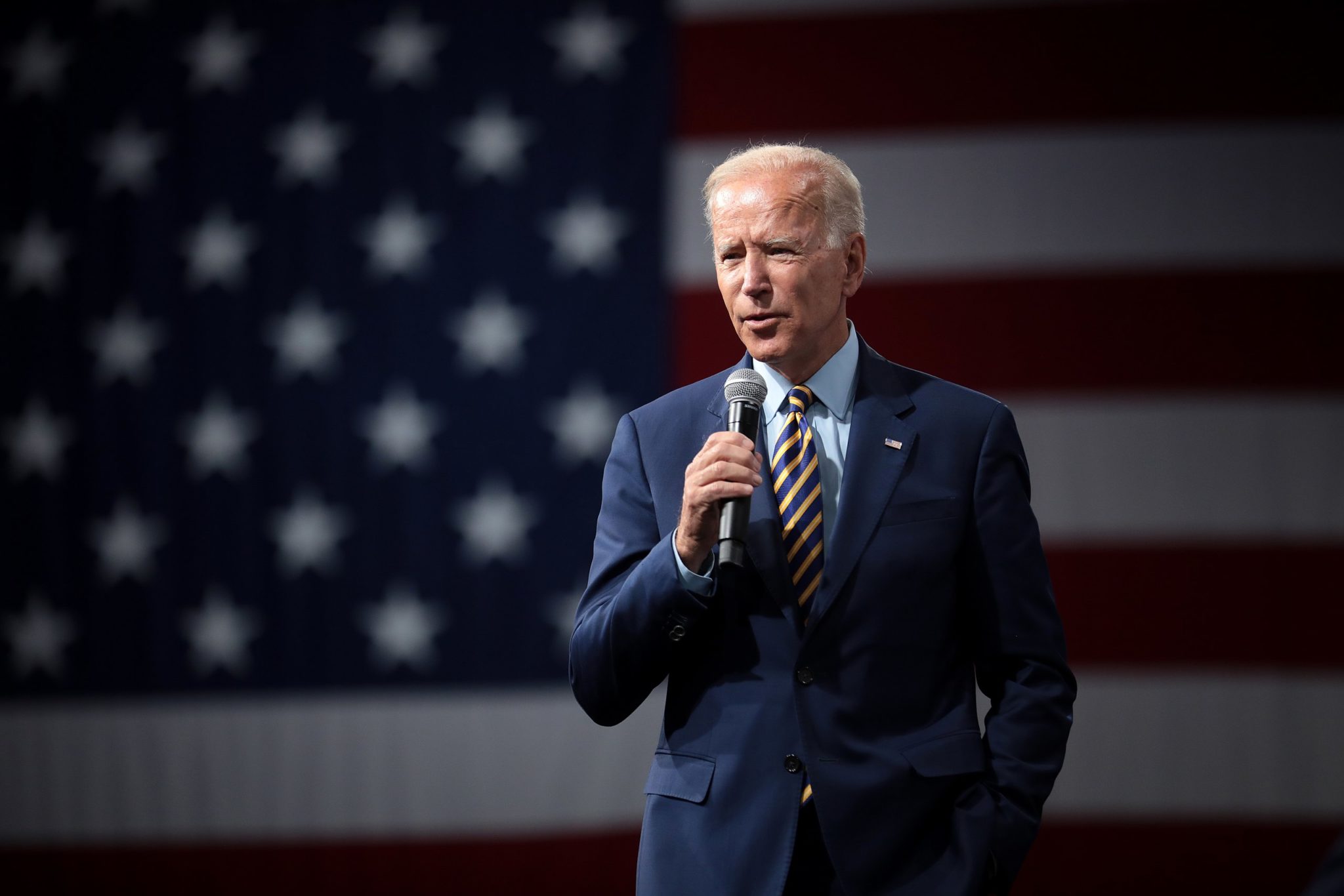University lobbies for Biden’s Build Back Better package
Yale lobbied Congress to pass Build Back Better, particularly for provisions for financial support for students, funding for sciences and immigration reform.

Wikimedia Commons
Over the last three months, Yale has spent up to $120,000 lobbying members of Congress to pass legislation including the Build Back Better Act, the Biden administration’s ill-fated spending package, according to the University’s most recent fourth-quarter disclosure form.
The University has been advocating for specific provisions in the $2.2 trillion spending package, including those related to immigration reform, student financial aid and carbon capture, according to Richard Jacob, associate vice president for federal and state relations. However, developments within the United States Senate — in particular, Senator Joe Machin’s (D-WV) December announcement that he would not support the entire spending package — have stalled the legislation. According to the President of Yale College Democrats Kyle Mayer ’23, the package as a whole is unlikely to pass the Senate because of that withdrawal of support.
“The Build Back Better framework represents a once-in-a-generation investment in America’s children, families, and energy future,” Mayer wrote in an email to the News. “Taken together, a successful Senate battle would deliver universal preschool, expand the Child Tax Credit, provide (an albeit meager) four weeks of paid family and medical leave, and pledge $555 billion towards developing clean energy solutions.”
There are four major financial aid reform measures included in the legislation proposal. For one, it proposes a $550 increase in the maximum Pell Grant award that students may receive. Second, it proposes excluding the full value of Pell Grants from students’ income taxes, not just the amount that students apply to their tuition and fees. Additionally, the legislation would exclude Pell Grants when calculating a student’s eligibility for the American Opportunity Tax Credit, and it would also reduce the tax liability of schools whose total scholarships for tuition and fees exceed 20 percent of gross tuition revenue.
In an email, Jacob explained that the University had been advocating for proposals to create a pathway to citizenship or legal status for undocumented students, but noted that in December 2021 the United States Senate Parliamentarian ruled that these provisions violated the Senate’s ‘Byrd Rule’, which states that provisions that are not designed primarily to reduce or raise revenue are not permitted in a reconciliation bill.
“On December 16, 2021, the Senate Parliamentarian issued an advisory opinion concluding that “Plan C” — a proposal submitted by Senate Democrats to provide parole to 6.5 million individuals who are undocumented – would likely not survive the Senate’s “Byrd Bath” process,” according to a report from the American Immigration Lawyers Association. “The opinion makes it significantly harder for these provisions to be included in the Build Back Better Act.”
Finally, the University has been lobbying for proposed funding for the National Science Foundation and other research agencies.
“These funds could support research projects, as well as purchase of equipment or small construction projects, at Yale,” according to Jacob.
The legislation, however, appears to have stalled in Congress as negotiations continue over its size and scope. Manchin’s decision to remove support for the omnibus bill has forced lawmakers into negotiations over specific provisions. According to Mayer, the “casualties” from this announcement have already begun to mount, pointing in particular to First Lady Dr. Jill Biden’s announcement this week that plans for free community college had been scrapped from the bill.
Manchin’s lack of support notwithstanding, it appears that certain University and Biden Administration priorities are unlikely to pass as part of this legislation.
In recognition of the challenges the legislation is facing in Congress, Jacob told the News that the University “continues to urge Congress and the Administration to enact these provisions in a version of the Build Back Better Act or the regular appropriations process.”
Mayer expressed regret at the bill’s stalling in Congress.
“It’s hard not to meet the bill’s demise with significant disappointment, particularly when its provisions are broadly popular and promise to ease the economic anxieties of working families,” Mayer wrote.
According to Mayer, in order to bypass the Republican filibuster of the Build Back Better Act, Democrats are trying to pass the legislation via reconciliation, which would require a simple majority of senators to pass.
“Sen. Joe Machin’s (D-WV) public withdrawal of support for the $2.2 trillion dollar package this December brought the effort to a grinding halt, robbing Democrats of their critical 50th vote in the Senate and all but dooming the bill’s future as a unified whole,” Mayer wrote.
He further explained that Manchin has caused the administration to dissolve the legislation into its constituent parts, which has forced the abandonment of key programs.
Despite the significant headwind, Mayer remained hopeful for the future of the bulk of the legislation. He pointed in particular to the upcoming midterm elections and Democrats’ desire to deliver on campaign promises before the election.
Jacob declined to comment on which members of Congress in particular were lobbied.
The lobbying information was reported for the fourth quarter of the year.







